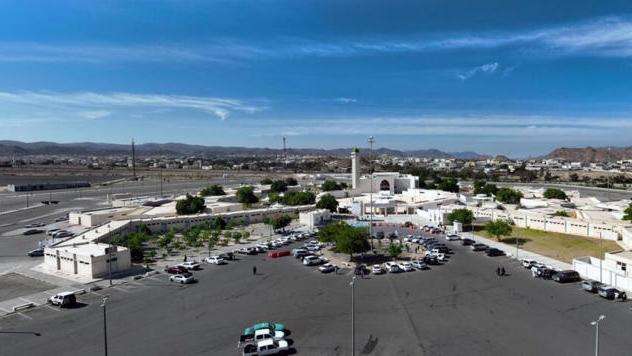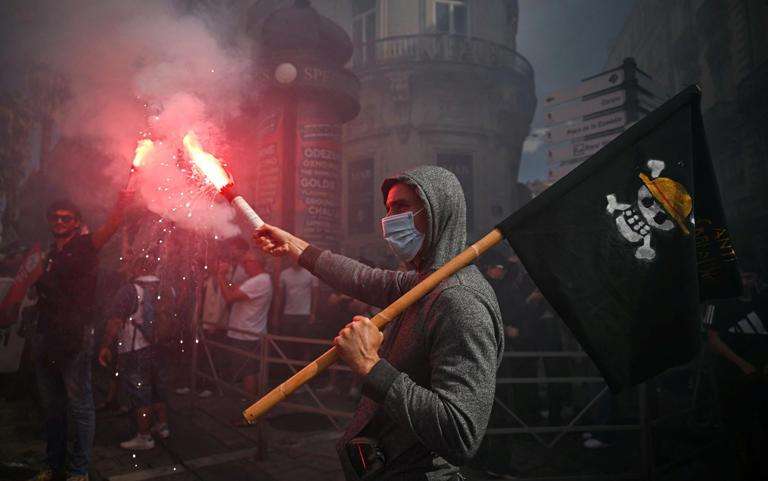A disturbing pattern of recurring fires has ignited serious safety concerns in a major East London development, an area with a significant British Bangladeshi population, raising anxieties reminiscent of the tragic Grenfell Tower disaster. Last night, eight fire engines and around 60 firefighters battled a blaze at New Providence Wharf in Poplar, marking the third fire to erupt at the same complex in recent years.
The London Fire Brigade (LFB) confirmed they were called to the scene at around 8:47 PM on Tuesday, responding to multiple calls reporting flames tearing through a flat balcony on the 13th floor of the 20-storey building. Dramatic footage captured bright orange flames engulfing the balcony, shattering glass and sending debris plummeting to the ground – chillingly close to where a significant fire broke out in the development's tallest building just months prior in August 2024.
While the latest incident saw a smaller part of a three-roomed flat and its balcony damaged, a man from the affected flat and several other residents required hospital treatment for smoke inhalation. This incident follows a concerning history at New Providence Wharf. In 2021, a previous fire at the same development exposed a serious failure in the building's smoke ventilation system, leaving residents trapped in smoke-logged escape routes. That incident resulted in two people being hospitalized and a further 42 individuals, including children, treated at the scene.
The New Providence Wharf development, comprising 1,535 flats and stretching 400 metres along the River Thames, is located in an area with a high concentration of British Bangladeshi residents, mirroring the demographic profile of the area surrounding Grenfell Tower in West London. The Grenfell Tower fire in June 2017, which tragically claimed 72 lives, remains a stark reminder of the devastating consequences of building safety failures, particularly affecting densely populated, diverse communities.
While the LFB's investigation into the cause of last night's fire is underway, the recurring nature of these incidents in the same development is deeply concerning for residents and safety advocates. The August 2024 fire at the same complex was attributed to someone smoking in their flat, highlighting the importance of fire safety awareness within residential buildings.
Broader Context: Fire Safety Risks in the British Bangladeshi Community
While specific statistics linking house fires directly to the British Bangladeshi community are not readily available, several factors prevalent in densely populated urban areas like parts of East London, where a significant portion of the community resides, can contribute to fire risks:
Overcrowding: Higher occupancy rates in some households can increase the potential for ignition sources and hinder escape routes.
Older Buildings: Some housing stock in these areas may be older and not equipped with modern fire safety features like comprehensive sprinkler systems or up-to-date fire-resistant materials.
Electrical Safety: The use of older or faulty electrical appliances and overloaded sockets can be a significant fire hazard. This is exacerbated by the increasing use of devices requiring charging, such as e-bikes, where non-compliant or damaged chargers pose a serious risk.
Awareness of Resistance: A lack of awareness regarding the fire resistance of building materials and the importance of maintaining fire doors can have severe consequences in the event of a blaze.
Past Incidents Affecting British Bangladeshis:
While a comprehensive list of every house fire affecting British Bangladeshis is difficult to compile, several notable incidents have caused significant concern within the community:
Tower Hamlets Fires: Over the years, there have been numerous smaller and larger residential fires in Tower Hamlets, where a large proportion of British Bangladeshis live, causing displacement and hardship. Local news archives often report on these incidents.
Similar High-Rise Concerns: Following the Grenfell tragedy, anxieties about the safety of other high-rise buildings in areas with large British Bangladeshi populations, like parts of East London, have been persistent. Residents have voiced concerns about cladding, fire safety measures, and evacuation procedures in various tower blocks.
The repeated fires at New Providence Wharf underscore the urgent need for thorough investigations, transparent communication with residents, and potentially a wider review of fire safety standards in similar developments, particularly in densely populated areas where the British Bangladeshi community forms a significant part of the population. The lessons learned from Grenfell must serve as a constant reminder of the catastrophic potential of neglecting fire safety, and proactive measures are crucial to ensure the safety and well-being of all residents. Ballymore, the developer of New Providence Wharf, has been contacted for comment but has yet to respond.


_7.jpg)

_8.jpg)



.svg)


